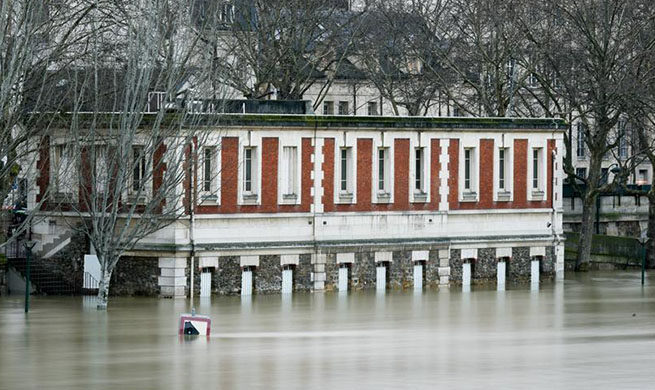by Christopher Guly
OTTAWA, Jan. 27 (Xinhua) -- A Canadian compromise on American demands to revise the North American Free Trade Agreement (NAFTA) could keep the trilateral pact between Canada, the United States and Mexico alive, according to a high-profile member of the Canadian government's NAFTA advisory council.
Canadian negotiators are hoping that a "creative solution" put forward last week at the sixth round of NAFTA talks in Canada to address the Americans' desire to significantly increase the quota for North American content under NAFTA's rules of origin could stave off U.S. President Donald Trump's threat to tear up the 24-year-old agreement, former Canadian Conservative leader Rona Ambrose told Xinhua in a recent interview.
Canada has proposed expanding the definition of North American content to include intellectual property and new technologies, such as electrified and self-driving vehicles emerging on the continent, to help meet the American demand to have half of all automotive parts made in the United States and increase overall North American content to 85 percent.
Under NAFTA, the rules of origin require 62.5 percent of a vehicle's content be made in North America to qualify for duty-free access to all three countries. But there is no specific provision for a percentage of the parts to be manufactured in each of the three countries.
Ambrose, a former Canadian cabinet minister who served as the interim leader of the Canadian Conservative Party from 2015 to 2017, explained that Canada's rules-of-origin proposal would not only "push the whole automotive industry in North America toward a more innovative approach to manufacturing," it could also complement Trump's "Made in America" presidential goal and provide jobs to workers in U.S. states where he enjoys political support.
Canada has also come up with an alternative to the U.S. request to add a sunset clause to NAFTA in which the agreement would be terminated after five years if each of the three countries did not approve of its continuation.
"Instead of a sunset clause, we're suggesting that there should be a review process where a country could recommend an amendment. There wouldn't be this constant threat of the agreement expiring and it would get rid of that level of uncertainty," said Ambrose, who as an advisory council member has been working with the Canadian government on the energy chapter of NAFTA.
On another major issue of contention at the talks, the United States wants an investor-state dispute system under NAFTA to be voluntary. The United States could opt out of this mechanism in Chapter 11, according to the Canadian proposal that would leave Canada and Mexico remain as participants.
"We've put constructive ideas on the table that actually respond to Trump's demands," said Ambrose, who added that "the Americans have made absolutely no effort to make progress in these talks."
She believes the first two days of next week will be critical in determining whether NAFTA lives or dies.
All eyes will be on U.S. Trade Representative Robert Lighthizer when he meets on Monday with Canadian Foreign Affairs Minister Chrystia Freeland and Mexican Secretary of Economy Ildefonso Guajardo Villarreal for the first time in three months following the conclusion of the latest round of NAFTA negotiations in the Canadian city of Montreal.
If Lighthizer does not publicly comment on NAFTA's future, Trump could signal in which direction the agreement is headed on Tuesday when he delivers his first State of the Union address before a joint session of the U.S. Congress on Capitol Hill in Washington, D.C.
Ambrose said: "If the Americans outright reject Canada's ideas, we'll all know where we stand, which is that we are probably on track to see Trump pull out of NAFTA."

















